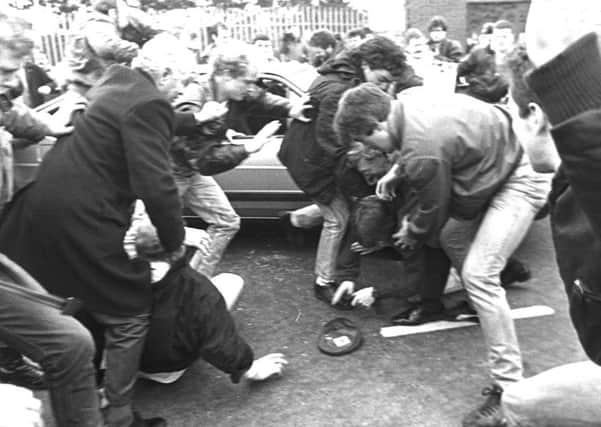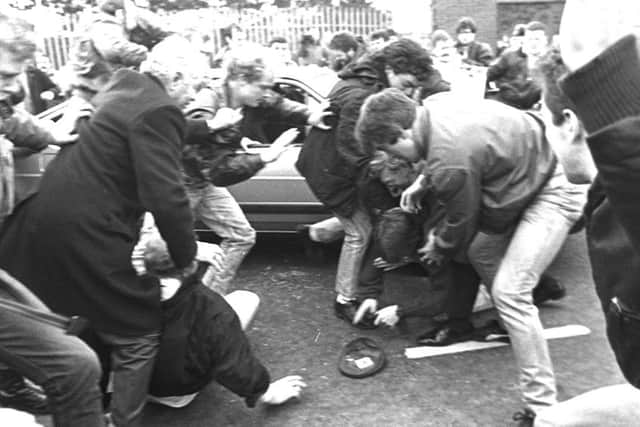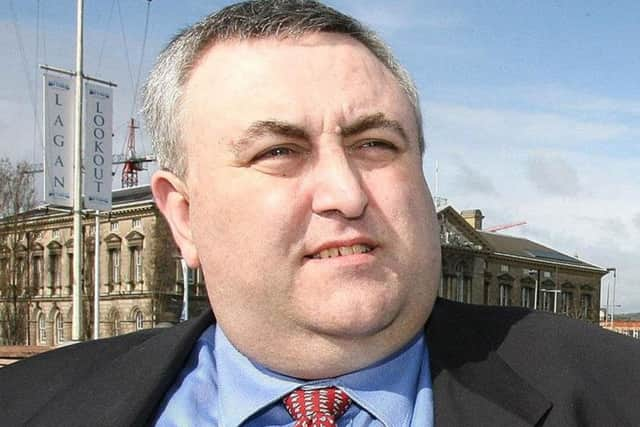Alan McQuillan: '˜I don't know if we could have saved the two corporals but we might have'


David Howes and Derek Wood were pulled from their car and brutally murdered on March 19, 1988 after straying into the funeral cortege of IRA man Kevin Brady who was killed in the Milltown cemetery attack a few days earlier.
Alan McQuillan was at the side of chief constable Sir Jack Hermon as the police high command watched live images beamed from an Army helicopter on a TV screen at RUC HQ.
Advertisement
Hide AdAdvertisement
Hide AdMr McQuillan, who would rise to the rank of assistant chief constable, was a chief inspector working with the headquarters team at the time.


He recalls the horror of the brutal assault unfolding as the officers tried to make sense of what was happening.
“There was a sense of frustration in wanting to do it (intervene), however, in reality, the prevailing mood was to adopt a more cautious approach,” Mr McQuillan said.
“We don’t know what this is, or who these people are, what are we putting people into? Is this a come-on situation, and where do we put people? It was a rapidly moving dynamic scene. How do we get [officers] in there?
Advertisement
Hide AdAdvertisement
Hide Ad“We knew that if we tried to force our way in there we could end up with deaths.”


Mr McQuillan compares the situation around the two corporals to the ones faced by officers trying to prevent shots being fired at the paramilitary funeral of Larry Marley the previous year, and the failed attempt to arrest Martin Galvin in 1984 that ended in Sean Downes being killed by a plastic bullet.
“We had to get out of the vehicles and draw weapons,” he said, referring to the Marley funeral.
“At one point we were instructed to get between the actual cortege, with the coffin, and the crowd. We initially tried to go in in vehicles and they (the mourners) started to attack us.
Advertisement
Hide AdAdvertisement
Hide Ad“Luckily the IRA stewards were very good, and I saw some of them at the front of the crowd saying ‘get this under control’ and ‘keep them 10 yards back.’ But that whole situation arose from going into a situation, even in a pre-planned way, and trying to do something that couldn’t be done.”


Commenting on the tragedy of the two corporals, he said: “In those circumstances I don’t know if we could have saved those two men, but we might have.
“But it’s what happens when you go into a situation where your presence, in the face of that huge crowd, is going to lead to very serious violence, and potentially the deaths of individuals. It is a very difficult balance. Ten years later, I was sitting in that seat in Belfast making those decisions and I know how difficult it is.”